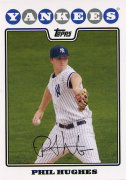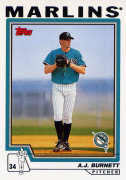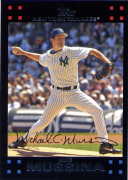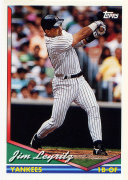We lost one of the good ones on Wednesday, when Mickey Vernon passed away at the age of 90, the victim of a stroke he suffered one week ago. Ordinarily, most of us are not shocked when we hear of someone dying in his ninth decade. But this case is a little bit different for me. I saw Mickey this past June in the Philadelphia area, when he served as one of the featured speakers on a symposium about athletes in the military. Other than walking with a bit of a hunch, he seemed to be in excellent health, a 90-year-old man who had managed to shave years off his physical appearance. His mind and memory remained razor-sharp, with his wits, intelligence, and polite manner all still intact. In fact, this was what I wrote about Vernon at the time:
“As impressive as his personality, Mickey’s health and conditioning are just as striking. He just turned 90, but he looks more like 60, with a full shock of hair that might make some middle-aged men jealous. He remains extremely sharp, with an excellent recall of detail and little tendency to exaggerate accomplishments.”
Later that day, my wife and I, along with several other organizers of the symposium, enjoyed having lunch with Mickey at a local VFW. Not surprisingly, Mickey became the centerpiece of the table, not because he tried to dominate the conversation, but because everyone wanted to hear his stories and opinions. I was no different; I desperately wanted to know about his feelings toward the Yankees, who employed him as a scout and coach in the seventies and eighties—his final job in baseball. Half expecting to hear some grumbles about the ownership of George Steinbrenner (who could be particularly hard on coaches and scouts at that time), I was surprised to hear Mickey say that he loved working for the Yankees. As proof, he showed me the Yankee watch that he still wore, given to him by the organization for his years of service. Mickey might not have been remembered as a Yankee, but he truly considered himself one.
For me, this was my second experience with Mickey. In 2006, I met him for the first time, also in the Philadelphia area, as part of a program that celebrated accomplishments of Chester, PA native Danny Murtaugh. Like the more recent encounter, this occasion also proved uplifting, as I came away with the kind of graceful impression that Mickey had made on so many other people both during and after his career in baseball.
And let’s not overlook that career as a player, which spanned from the late 1930s to the early 1960s. Mickey Vernon was a tremendous ballplayer, a two-time batting champion and a seven-time All-Star who was once voted the greatest first baseman in the history of the Washington Senators’ franchise. Yet, his career was hurt by Washington’s home park, which tended to suppress home runs, making life more difficult for a mid-range power hitter like Mickey. He also lost some of his career to military service during World War II, which caused him to miss all of the 1944 and ’45 seasons.
In spite of the obstacles, Vernon played more games at first base than anyone during the 20th century. He was a slick defender, one of the finest fielding first basemen in the game’s history, along with being a productive line-drive hitter who flashed power at various times during his four-decade career. He was a smart hitter, too, the kind who almost always walked more than he struck out. From 1953 to 1956, he put up big numbers with both the Senators and Red Sox, highlighted by a ‘53 campaign that saw him register a .403 on-base percentage and a .518 slugging percentage while reaching career highs in runs and RBIs. He was good enough to have merited inclusion on the Hall of Fame’s Veterans Committee ballot, which features his name along with nine other players whose careers began prior to 1943. I know that more than a few of his fans in Philadelphia and his native Marcus Hook are crossing their fingers, hoping that the committee will finally call his name this December.
Even after all of these years, his friends still care about the Hall of Fame issue, in large part because of his character and charm. As fine a player as Vernon was, he was a better man. Likeable throughout his playing days, Vernon continued to spread the wealth of his amiable personality as a manager, coach, scout, and after his retirement, as a frequent guest at baseball-related functions. If you wanted to add a touch of gentlemanly class and quiet intelligence to your event, you just made sure to send an invitation to Mickey Vernon.
Jim Vankoski, who skillfully arranges a number of baseball-related events in the Philadelphia area, knew all about Mickey. He was the one who introduced me to Mickey, who told me what a wonderful guy that he was. Mickey certainly did not disappoint. He patiently answered questions that I interspersed throughout our conversations, while at the same time taking an interest in what I was doing. Thanks, Jim, for giving me the chance to meet this special man.
And thanks to Mickey for the way that he treated me—the way that he seemingly treated everyone. I only met him twice, but I feel like I knew him for a lifetime.
Bruce Markusen writes "Cooperstown Confidential" for MLBlogs at MLB.com.






